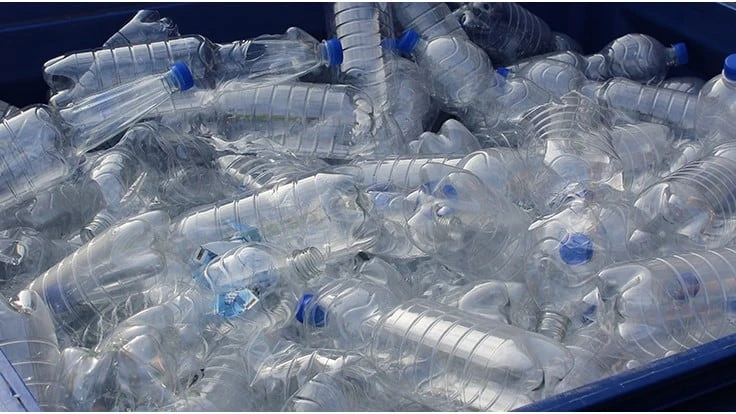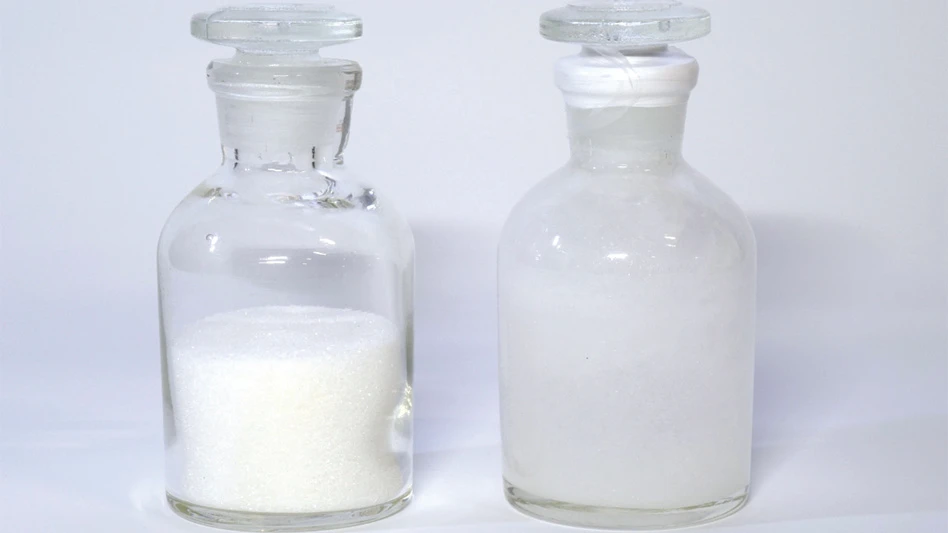
Photo by Recycling Today staff.
A panel gathered for the online International Recycling Week event represented several links in the plastic recycling supply chain, and each one of them is involved in and/or witnessing big-ticket investments in new plastic recycling activity.
Mass media headlines surrounding plastic packaging have been consistently negative for several years, as improperly discarded plastic has accumulated in the ocean and other ecosystems. The activism has spurred (belatedly, activists would likely contend) new regulations and substantial investments by brand owners, plastics producers, waste and recycling companies and entrepreneurs all seeking to raise the global packaging recycling rate.
Syed Shahzad Alam, a procurement manager in the Middle East region for Unilever, pointed to that company’s aggressive plastic recycling targets when commenting, “We are not the only one doing this, but we are certainly the pioneer and we are helping to create an industrywide drive, [and] this is actually happening.”
France-based waste and recycling firm Veolia has been “heavily investing in plastic recycling,” said Ronald Richa, who works for the firm in the United Arab Emirates (UAE). Richa says his work involves “structuring the plastics recycling business here with a new project we intend to build [focused on] polyethylene terephthalate (PET) recycling.”
To those who might be skeptical about the pace of discarded plastic reprocessing investments, Johann Conradie of South Africa-based Myplas pointed to the plant and equipment investments being made by plastic recycling technology providers such as Austria-based Starlinger & Co. and Austria-based Erema Group. “In terms of following the money, look at equipment makers,” said Conradie, who also acts as president of the South African Plastics Recycling Organisation (SAPRO). “Clearly someone is buying the equipment; someone is investing. It’s happening.”
While the investments can help plastic packaging raise a global recycling rate that lags behind metal and paper, the panelists also pointed to barriers that remain. The cost expectations of brand owners and bottle producers who want recycled-content plastic to come at a discount pose one such problem.
Regarding procurement strategies based on the price of virgin resins and crude oil, Richa said, “This is something that is very painful and very difficult when you are managing a recycling project and you want to assure its sustainability over time.”
Recycler and reprocessor Max Craipeau of Singapore-based Greencore Resources Ltd. said some price decoupling is underway, saying it “has been happening for the last five years for PET” in Europe. A regulatory climate that promotes plastic bottle recycling there is a factor, he added. “When you have legislation that makes it mandatory” for brands to have a recycled content percentage, “this is the only thing that can lead to price decoupling. This is why you don’t see other recycled resins enjoying that decoupling.”
Increased global restrictions to the cross-border flow of plastic scrap have created both challenges and opportunities, said panelists. “We see it as an opportunity,” said Riche. Recycling needs to become a local or regional market, he commented. “Collect it, segregate it and put it back through a certain transformation [reprocessing] system.” That, said Riche, “goes along with policies and commitments of brand owners. It’s a positive way to push for a more local recycling system in each country.”
Conradie said such restrictions may not be helpful in Africa, where in some nations “there is no capacity for conversion” from plastic scrap to flakes or pellets. In Africa, “The packaging that is being used often is coming from Europe and the like,” continued Conradie. “There needs to be some form or way for them to be able to bale their plastic and ship it in some way back to Europe, where a lot of it is coming from, in many cases.” Or, he said, reprocessors in South Africa need access to material from neighboring nations that have little or no capacity, such as Angola.
While PET got most of the attention during the conversation, Alam said of Unilever, “HDPE [high-density polyethylene] is quite a significant material for us. We can’t meet our target unless we have a solution for recycled HDPE material as well.”
Saying Unilever has cooperation agreements for HDPE capacity globally, he said in the Middle East the company has signed a memorandum of understanding (MOU) with UAE-based waste management firm Bee’ah with “an intent to think about how to put an HDPE plant in place” in the region.
International Recycling Week was organized by UAE-based Waste & Recycling Middle East & Africa magazine.
Latest from Recycling Today
- Commentary: Increasing aluminum recycling can decrease aluminum imports
- Pretred offers recycled-content vehicle barriers
- RMDAS figures show February surge in recycled steel’s value
- US economic indicators show signs of wavering
- Report analyzes growing LIB recycling industry
- Sage Sustainable Electronics acquires Cascade Asset Management
- Optimized Waste and Logistics North America joins Together for Safer Roads
- Resynergi secures $18M Series B funding for plastic recycling technology





